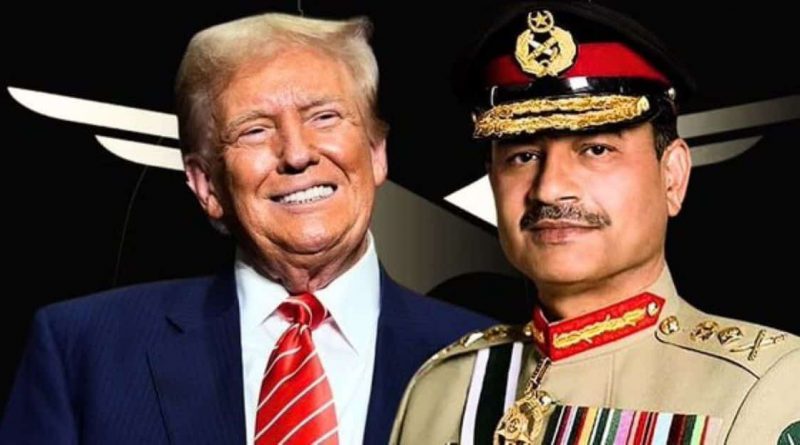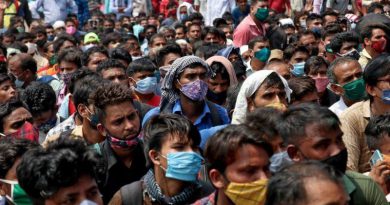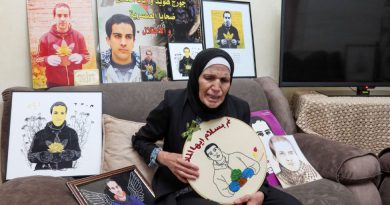Pakistan’s Double Game on Terror: Why Trump Must Demand Answers
These questions are not niceties. They are tests of Pakistan’s credibility, and the answers will shape the future of U.S. engagement in South Asia.
As you read this, Pakistan’s Army Chief and Prime Minister are seated across from President Donald Trump in Washington, facing what may be the most consequential conversation of their careers. The room is heavy with subtext. Outside, aides shuffle papers and reporters speculate. Inside, the stakes are personal, political, and global.
This isn’t just another diplomatic handshake. It’s a reckoning.
Pakistan arrives at this meeting bruised and brittle. Just months ago, the May 2025 India-Pakistan crisis brought South Asia to the edge of nuclear war. Missile strikes, retaliatory air raids, and four days of high-stakes brinkmanship left the region shaken.
Now, with Pakistan’s economy teetering, its military entangled in governance, and its strategic loyalties drifting toward Beijing, the United States must ask hard questions — not tomorrow, not next week, but during the meeting.
President Trump, known for his blunt diplomacy, has a rare opportunity to demand clarity and accountability. These questions are not niceties. They are tests of Pakistan’s credibility, and the answers will shape the future of U.S. engagement in South Asia.
First – Will Pakistan End Enforced Disappearances and Deliver Justice?
Thousands of Pakistanis — journalists, activists, students — have vanished without trial. Many are believed to be held by state agencies, especially in Balochistan. Amnesty International has documented over 2,300 cases. UN experts in April 2025 called the practice “unrelenting” and a serious breach of international law.
If the U.S. is serious about human rights, it must demand a timeline for releasing detainees and prosecuting those responsible. Continued aid without accountability only deepens impunity.
Second – How Will Pakistan Prevent Civilian Casualties in Military Operations?
Just weeks ago, Pakistan’s military launched airstrikes in Khyber Pakhtunkhwa using Chinese J-17 jets, killing 30 civilians in their sleep. These are not isolated incidents. They reflect a troubling pattern of disregard for civilian life in counterterrorism operations.
President Trump must press for independent oversight and demand transparency in targeting protocols. Counterterrorism cannot be a license for indiscriminate violence.
Third – What Is Pakistan’s Plan to Escape China’s Debt Trap?
The China-Pakistan Economic Corridor (CPEC) has ballooned into a $9.5 billion liability. Power projects alone account for $7.5 billion. A January 2025 analysis warned of geopolitical strings attached, as Chinese loans deepen fiscal instability without delivering promised growth.
Washington must ask: What safeguards is Pakistan implementing to avoid becoming a client state of Beijing? Is there a plan for debt restructuring or diversified partnerships? The answers will reveal whether Islamabad remains sovereign or slides deeper into dependency.
Fourth – Will Pakistan Sever Ties with Anti-India Jihadist Networks?
Despite official denials, Pakistan’s military continues to be linked with jihadist groups targeting India. Lashkar-e-Taiba, Jaish-e-Mohammed, and the United Jihad Council operate with impunity, often under the guise of charitable or religious organizations.
A June 2025 MEMRI report exposed direct ties between these networks and military actors.
The recent Pahalgam attack, which triggered the May crisis, was traced to operatives with known links to Pakistan-based groups. Trump must demand concrete actions — asset freezes, prosecutions, and intelligence cooperation — to dismantle these networks. The era of strategic ambiguity must end.
Fifth – How Is Pakistan Cracking Down on Terror Financing via Hawala Networks?
Pakistan’s jihadi infrastructure is sustained by informal financial systems, particularly hawala networks. These unregulated channels allow billions to flow to militant groups, bypassing formal banking oversight.
A May 2025 investigation revealed a “complex web” of financial flows sustaining terrorism. Even Pakistan’s own National Counter Terrorism Authority (NACTA) admits the scale of the problem.
The U.S. must insist on enhanced financial intelligence capabilities, international cooperation, and stricter enforcement of anti-money laundering laws. Executive Order 13224 must be more than a symbolic gesture.
Sixth – Will Pakistan Reform Its Blasphemy Laws to Protect Free Speech and Minorities?
Pakistan’s blasphemy laws, hardened under General Zia-ul-Haq, are routinely weaponized against minorities, journalists, and dissenters. These laws have led to mob violence, extrajudicial killings, and widespread fear.
Human Rights Watch’s June 2025 report highlights their use in land grabs and personal vendettas. A July 2025 UN statement condemned the “widespread impunity” surrounding these laws.
With Pakistan ranking 125th globally in press freedom, Trump must push for legal reforms that protect speech and prevent religious vigilantism. Free expression is not a Western luxury — it is a universal right.
Seventh – Why Is Dr. Shakil Afridi Still in Solitary Confinement?
Dr. Shakil Afridi, the physician who helped the CIA locate Osama bin Laden, has spent nearly 14 years in solitary confinement. His continued detention is a betrayal of a man who risked everything to assist the United States.
A March 2025 State Department report and his son’s public plea underscore the urgency of his release.
Trump must make Afridi’s freedom a condition of continued engagement. Loyalty must be rewarded — not punished.
A Moment of Reckoning
Pakistan’s leadership has long relied on strategic deflection to maintain its position on the global stage. But the world has changed. With economic collapse looming, military overreach growing, and regional tensions escalating, Islamabad must choose: reform or isolation.
President Trump has a unique opportunity to demand clarity, accountability, and action. These questions are not diplomatic formalities — they are leverage points for a Pakistan that aligns with U.S. interests or risks marginalization.
India, too, must remain vigilant. The convergence of Pakistani and Bangladeshi leadership under the shadow of American strategic interests signals a new phase in regional politics. For New Delhi, this is a moment to assert its own narrative and defend its sovereignty with clarity and conviction.
The time for soft engagement is over. The time for hard questions is now — and they’re being asked as we speak.
Disclaimer: Views expressed by writers in this section are their own and do not reflect Milli Chronicle’s point-of-view.



